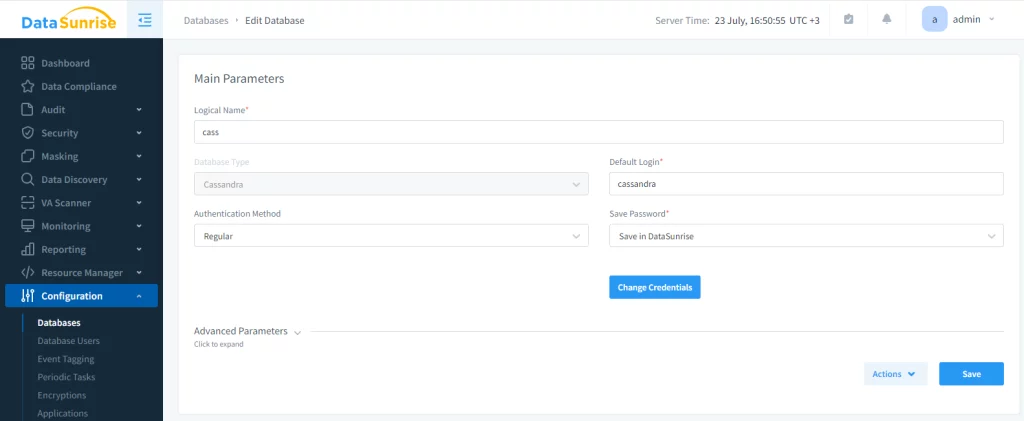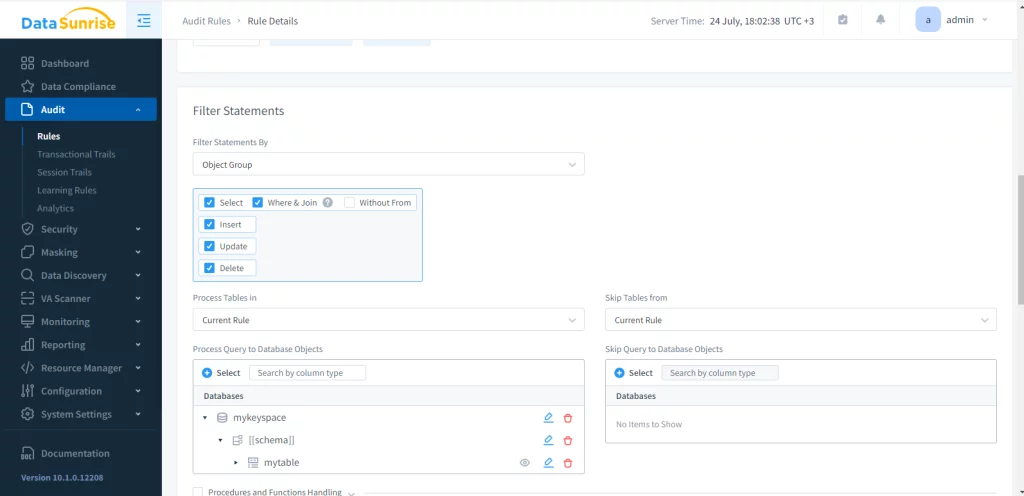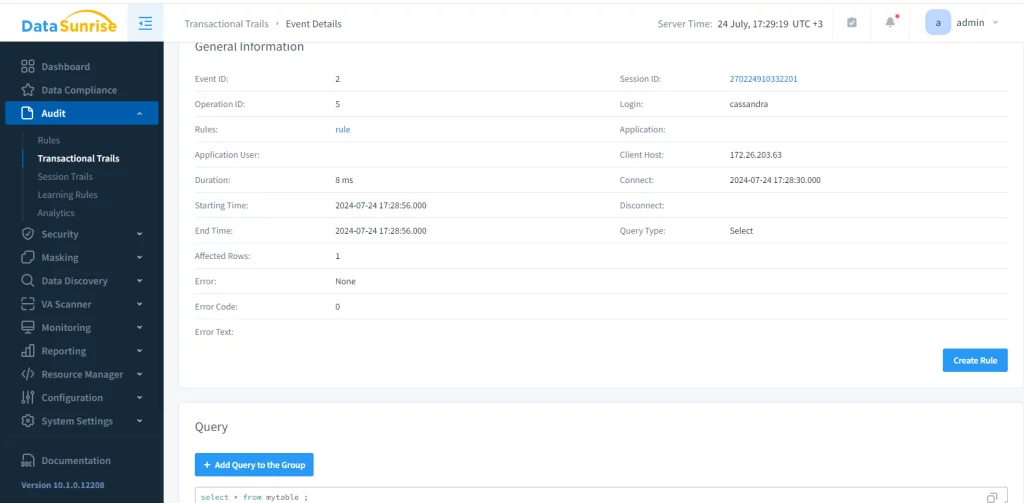
Ensuring Data Security and Integrity with Apache Cassandra Data Auditing

Apache Cassandra is a powerful, distributed database system used by many organizations to manage large amounts of data. As data volumes grow, maintaining data integrity and security becomes crucial. This is where data audit in Apache Cassandra comes into play. We’ll explore the importance of data audits, how they work in Cassandra, and best practices for implementation.
A data audit is a process of examining and verifying data within a database system. It helps organizations ensure the accuracy, completeness, and reliability of their data. Data audit is important in Apache Cassandra to ensure data quality and catch issues early.
Cassandra’s distributed nature makes data audit particularly important. With data spread across multiple nodes, ensuring consistency and integrity can be challenging. Regular audits help detect and resolve discrepancies, preventing data corruption and maintaining the overall health of the database.
Key Components of Data Audit in Cassandra
One crucial aspect of data audit in Cassandra is schema validation. This process ensures that the database structure remains consistent across all nodes. It involves checking column families, data types, and other schema elements for any discrepancies.
Cassandra uses a concept called eventual consistency. However, this can sometimes lead to temporary inconsistencies. Data audits help identify and resolve these issues by comparing data across different replicas and ensuring they match.
Security is a top priority in database management. Data audit in Cassandra include reviewing access controls, user permissions, and authentication mechanisms. This helps prevent unauthorized access and ensures data privacy.
While not directly related to data integrity, performance metrics are an important part of Cassandra data audits. They help identify bottlenecks, optimize query performance, and ensure the overall health of the database system.
Implementing Data Audit in Apache Cassandra
Several tools are available for automating data audits in Cassandra. These tools can schedule regular audits, generate reports, and alert administrators to potential issues. Some popular options include Apache Cassandra’s built-in nodetool utility and third-party tools like DataSunrise. Let’s compare the approaches:
We want the query to be captured:
To implement it using native Cassandra resources, one would need to:
- Manually write code for triggers
- Turn on Change Data Capture and decode the logs it generates
- Use CQL Querying, which provides the bare minimum of information.
A much easier and more secure way to audit your Cassandra database is to implement Datasunrise. To do it, consider the following approaches:
Set up an Apache Cassandra instance through the Configuration menu.

Now you just need to specify an audit rule in the corresponding section. Define clear objectives, configure the access controls and set up scheduled reports for the auditing, as shown below.

After executing the query, the corresponding menu will show the audit trails. The result would look like this in Transactional trails:

Best Practices for Data Audits in Apache Cassandra
Consistency is crucial for data audits. Establish a regular schedule for audits, whether daily, weekly, or monthly, depending on your organization’s needs and data volume.
Ensure your audit process covers all aspects of your Cassandra deployment. This includes all nodes, data centers, and keyspaces. Partial audits may miss critical issues.
Keep track of changes to your audit processes and scripts. This helps you understand how your audit requirements evolve and ensures consistency in your approach.
Maintain detailed documentation of your audit procedures, findings, and remediation efforts. This creates a valuable historical record and aids in troubleshooting and compliance efforts.
Set up automated alerts for critical audit findings. This allows your team to respond quickly to potential issues before they escalate.
Regularly review and update your audit processes. As your Cassandra deployment grows and evolves, your audit needs may change. Stay proactive in adapting your approach.
Challenges and Benefits
Cassandra’s ability to handle massive amounts of data can make audits time-consuming and resource-intensive. Efficient audit strategies and tools are crucial for managing this challenge. The distributed architecture of Cassandra can complicate audit processes. Ensuring consistency across all nodes requires careful planning and execution.
Many organizations rely on Cassandra for real-time data processing. Design audits to minimize impact on ongoing operations while still providing thorough coverage.
Despite these challenges, regular data audit in Apache Cassandra offer significant benefits. They help maintain high data quality by identifying and correcting errors, inconsistencies, and outdated information. By reviewing access controls and monitoring data access patterns, audits strengthen the overall security posture of your Cassandra deployment.
Performance-related audits help identify areas for optimization, leading to better query response times and more efficient resource utilization. For organizations in regulated industries, data audits in Cassandra provide valuable documentation and evidence of data management practices.
Conclusion
Data audit play a crucial role in maintaining the integrity, security, and performance of Apache Cassandra databases. By implementing regular, comprehensive audits and following best practices, organizations can ensure their Cassandra deployments remain reliable, secure, and efficient. As data continues to grow in importance, the value of thorough data auditing in Cassandra will only increase.
To learn what else can DataSunrise provide to its users, schedule a demo session with our team of experts and discover the easiest ways to data security.
